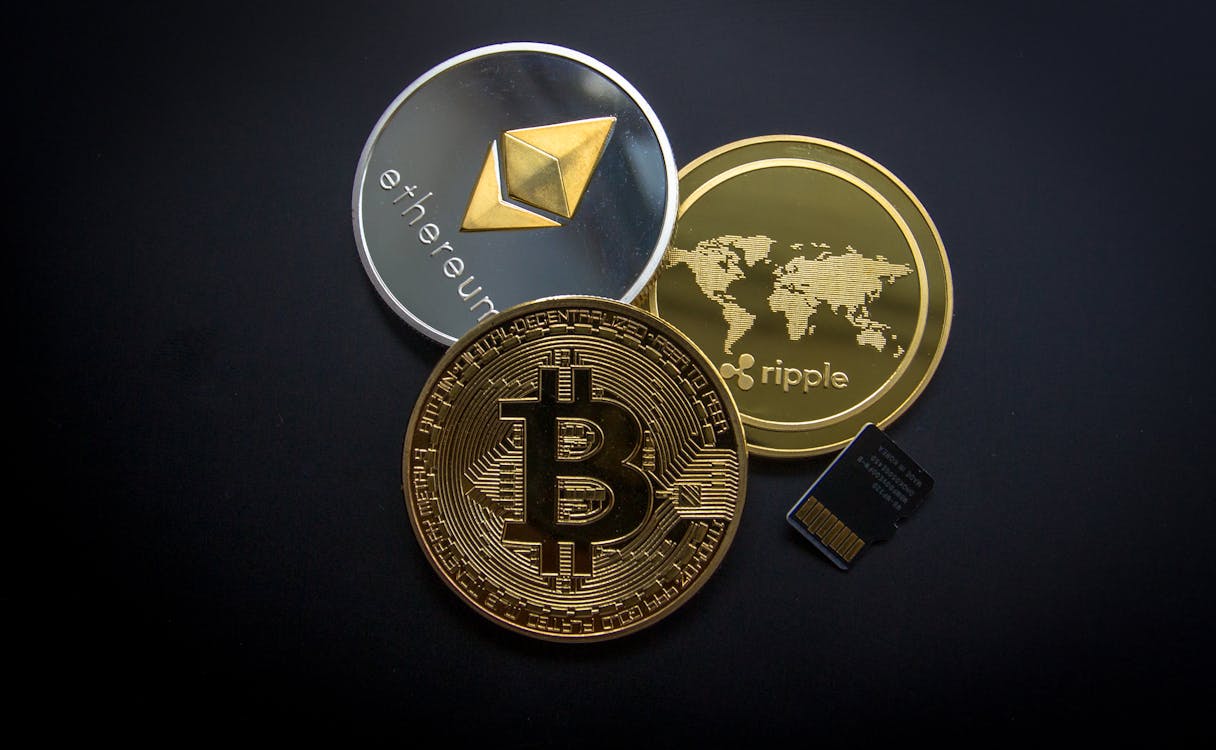Forget cash. Imagine a world where your phone is your wallet, and your money exists in a digital realm, free from borders and central banks. This isn’t science fiction – it’s the world of cryptocurrency.
Cryptocurrency, often shortened to «crypto,» has exploded onto the financial scene, leaving many wondering: is it the future of money, or a risky gamble? Let’s dive into the world of crypto, explore its potential impact on global finance, and uncover the opportunities and challenges it presents.
What is Cryptocurrency, Anyway?

Unlike traditional currencies printed by governments, cryptocurrencies are digital assets that exist on a decentralized network called a blockchain. Think of a blockchain as a giant, public ledger of transactions, constantly being updated and verified by a network of computers around the world. This decentralization is a key feature of crypto – it removes the control from central banks and allows for secure, transparent transactions.
Bitcoin: The OG of Crypto
The most famous cryptocurrency is Bitcoin, launched in 2009. It’s like the first domino in a chain reaction – its success paved the way for a vast array of other cryptocurrencies, each with its own unique features and purposes. Some aim to be a store of value, like digital gold, while others aim to revolutionize specific industries, like supply chain management.
How Can Crypto Change the World?
Cryptocurrency has the potential to disrupt the global financial landscape in several ways:
- Faster and Cheaper Transactions: Imagine sending money across borders instantly and with minimal fees. Crypto transactions can bypass traditional banking systems, making them faster and potentially cheaper, especially for international payments.
- Financial Inclusion: Millions of people worldwide lack access to traditional banking systems. Crypto, with its accessibility and lower barriers to entry, could offer them a way to participate in the global financial system.
- Empowering Individuals: Crypto puts more control over your money in your own hands. No central bank can freeze your account or manipulate the currency value (at least, in theory).
But Hold On, There Are Challenges Too
Crypto isn’t without its critics. Here are some potential downsides to consider:
- Volatility: The value of cryptocurrencies can fluctuate wildly, making them a risky investment. Imagine investing in a rollercoaster ride – that’s the kind of volatility we’re talking about.
- Security Concerns: Crypto exchanges, where you buy and sell crypto, can be vulnerable to hacking. Remember, it’s still a relatively new technology, and security is an ongoing concern.
- Environmental Impact: Mining some cryptocurrencies requires a massive amount of energy, raising environmental concerns. The debate on the sustainability of crypto is ongoing.
So, is Crypto the Future?

The future of money is likely a blend of the old and the new. Cash and traditional banking systems won’t disappear overnight, but crypto has the potential to play a significant role. Governments around the world are exploring Central Bank Digital Currencies (CBDCs) – digital versions of traditional currencies.
What Does This Mean for You?
Cryptocurrency is a complex and rapidly evolving space. Do your research before investing, and only invest what you can afford to lose. The future of money might be a mix of cash, traditional banking, and crypto – and that future is still being written.
Here are some tips for navigating the world of crypto:
- Educate Yourself: Learn about blockchain technology, different cryptocurrencies, and the risks involved.
- Start Small: If you’re curious about investing, start with a small amount and consider a diversified portfolio of cryptocurrencies.
- Seek Guidance: Talk to a financial advisor who understands crypto to create a personalized investment strategy.
The world of cryptocurrency is exciting, but it’s also a wild ride. By approaching it with caution, you can explore its potential as we all navigate the ever-evolving landscape of global finance.
⬇️ESPERA LOS SEGUNDOS PARA DESCARGAR⬇️



